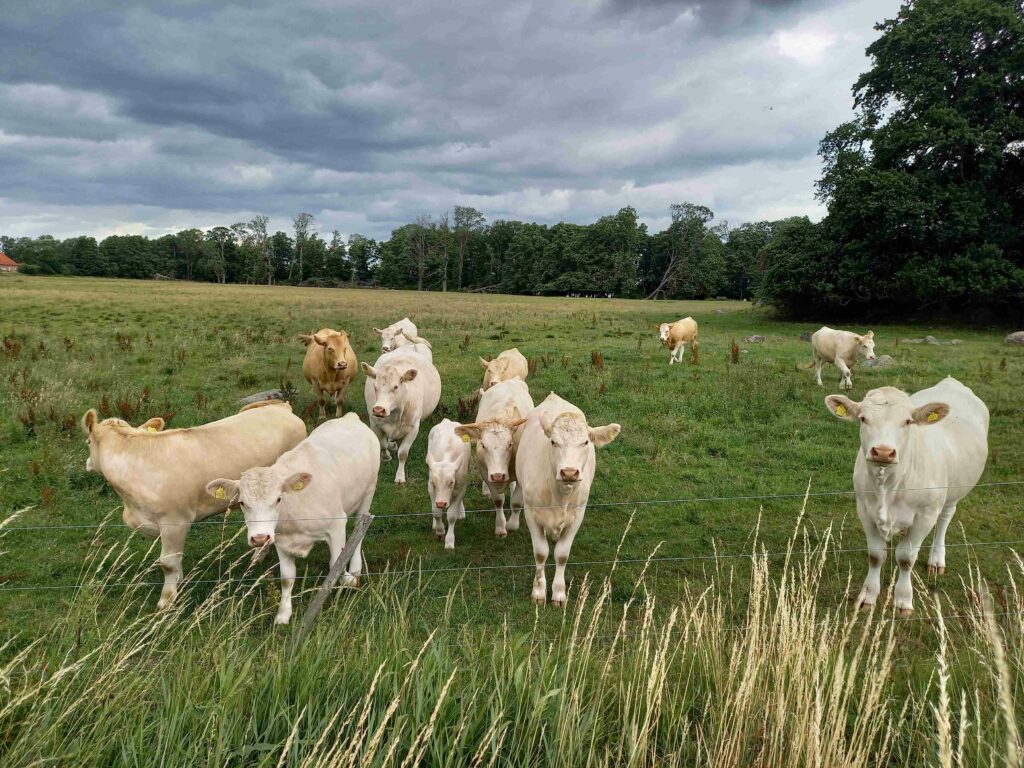The European Commission recently published its Vision for the Future of Agriculture and Food. This document draws upon the outcomes of seven months of intense debate and negotiations among stakeholders in 2024.
Those months culminated in the Strategic Dialogue consensus report, signed by 30 sectorial and civil society organisations. The report was in our opinion balanced in its demands for ambitious but equitable reforms in our food system, including on animal welfare.
We were both actively involved throughout the process, making sure that the interests of farmed animals were taken into account. One of us, Philip Lymbery, represented Eurogroup for Animals in the Strategic Dialogue. We are now represented by Reineke Hameleers in the European Board of Food and Agriculture (EBAF), an advisory board set up by the European Commission last December for five years to provide high-level advice to the Commission on the follow-up of the Strategic Dialogue.
It is no wonder then, that we were eagerly awaiting the Commission’s next move: the Vision document just made public will have far-reaching implications, setting the scene for the EU’s agri and food policies until 2040.
Much is at stake for the animals in the coming years, with European citizens having clearly expressed their will with the last two European Citizens’ Initiatives, calling for an end to cages in animal farming and for a ban on the production and import of fur across the EU.
The special 2023 Eurobarometer further confirmed that animal welfare continues to be an important issue for Europeans, who want better protection measures for animals across the board and to be able to make informed choices when shopping for food.
Encouragingly, the new vision acknowledges these concerns with a commitment to achieve a ban on cages in animal farming and put forward new and updated rules on animal welfare. This is a strong reassurance of the new Commission’s commitment to follow through on its previous pledges. We expect a comprehensive and ambitious reform of all EU animal welfare legislation based on the opinions of the European Food Safety Authority (EFSA) and encompassing all farmed species during their entire lives, including at slaughter.
As part of our critical objectives for change, we warmly welcome the Commission’s wording on trade, reciprocity and import requirements. The document stipulates “a stronger alignment of production standards applied to imported products, notably on pesticides to ensure that the EU’s concerns about animal welfare and environmental protection are considered, and to uphold EU’s moral values in response to societal demand”. As stated by the Commissioner for Health and Animal Welfare, Olivér Várhelyi, higher animal welfare standards should be drivers of global competitiveness.
But raising animal welfare standards can’t be seen in isolation. Rather, it must be an integral part of the urgent transition towards a different kind of farming and food production, which should be future-proof and ethical for all players involved. In this respect, the Vision’s focus on strategic autonomy and food sovereignty ensures that the EU can continue focusing on upholding its quality, environmental, and animal welfare standards. How to get there, however, is unclear.
Direct payments, as opposed to targeted ones, are set to remain a key component of the Common Agricultural Policy (CAP). Unless the CAP budget increases substantially, this begs the question of who will pay for the necessary investments. The conclusions of the Strategic Dialogue report were bolder in calling for public money for public goods and identifying animal welfare as a priority, both for the eco-schemes and in the Agricultural and Transition Fund.
As regards labelling and transparency to consumers, we welcome the reference to giving more information to consumers on animal welfare and believe that animal products should be labelled according to the method of production and animal welfare outcomes. While harmonising animal welfare labelling is rightly seen as a priority, it should be made mandatory if it is to effectively deliver consistent honest labelling that consumers require.
On the down side, the Vision is shying away from taking a strong position on the future strategic direction for sustainable food production systems, including organic and agroecological farming practices. While there is potential for these aspects to be addressed in the upcoming workstream on livestock, the current lack of a specific roadmap on food policy and protein diversification was a missed opportunity.
Additionally, in contrast to the Strategic Dialogue report, the Vision does not outline consumption-side policies, placing much of the responsibility on local authorities to develop and implement initiatives that make healthy and sustainable diets accessible and affordable for all consumers.
Overall, we greatly welcome the Vision’s confirmation that outdated animal welfare legislation will be revised and cages banned. These are significant milestones and deserve recognition. We firmly believe that stronger welfare standards must be accompanied by reciprocal measures for imported products. Additionally, animal welfare labelling should be leveraged to reward farmers who go the extra mile for animal well-being.
However, the Vision does not identify strategies to finance a transition to truly sustainable food production and address the need for protein diversification. We remain committed to playing our part in ensuring that the Commission effectively implements its animal welfare engagements. At the same time, we will continue working alongside other civil society organisations to advocate for more ambitious food policies that are fit for the future.
By Reineke Hameleers, CEO, Eurogroup for Animals and Philip Lymbery, Global CEO, Compassion in World Farming


